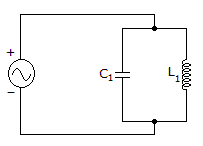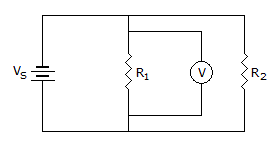Discussion
Home ‣ Electronics ‣ Operational Amplifiers See What Others Are Saying!
- Question
A noninverting closed-loop op-amp circuit generally has a gain factor:
Options- A. less than one
- B. greater than one
- C. of zero
- D. equal to one
- Correct Answer
- greater than one
- 1. An S-R NAND latch with both of its inputs LOW has an output that is _____________.
Options- A. unpredictable
- B. floating
- C. HIGH
- D. LOW Discuss
- 2. Digital systems using the 10-state system are more accurate than those using the two-state system.
Options- A. True
- B. False Discuss
- 3. Two half adders can be combined to form a full adder with no additional gates.
Options- A. True
- B. False Discuss
- 4. Resonance will occur when XC = XL in the circuit below.

Options- A. True
- B. False Discuss
- 5. RTDs, strain gauges, and pressure transducers are _____ devices.
Options- A. resistive
- B. inductive
- C. capacitive
- D. solid-state Discuss
- 6. Asynchronous inputs will cause the flip-flop to respond immediately with regard to the clock input.
Options- A. True
- B. False Discuss
- 7.

If R2 opens in the given circuit, the voltage across R1 will ___.
Options- A. increase
- B. decrease
- C. equal 0 V
- D. remain unchanged Discuss
- 8. What is RT for fifteen 2 MΩ resistors all connected in parallel?
Options- A. 133 kΩ
- B. 300 kΩ
- C. 750 kΩ
- D. 30 MΩ Discuss
- 9. The polarity of VBE is such that it reverse biases the base-emitter junction.
Options- A. True
- B. False Discuss
- 10. The largest branch resistance in a parallel circuit carries the largest branch current.
Options- A. True
- B. False Discuss
More questions
Correct Answer: unpredictable
Correct Answer: False
Correct Answer: False
Correct Answer: True
Correct Answer: resistive
Correct Answer: False
Correct Answer: remain unchanged
Correct Answer: 133 kΩ
Correct Answer: False
Correct Answer: False
Comments
There are no comments.More in Electronics:
Programming
Copyright ©CuriousTab. All rights reserved.
